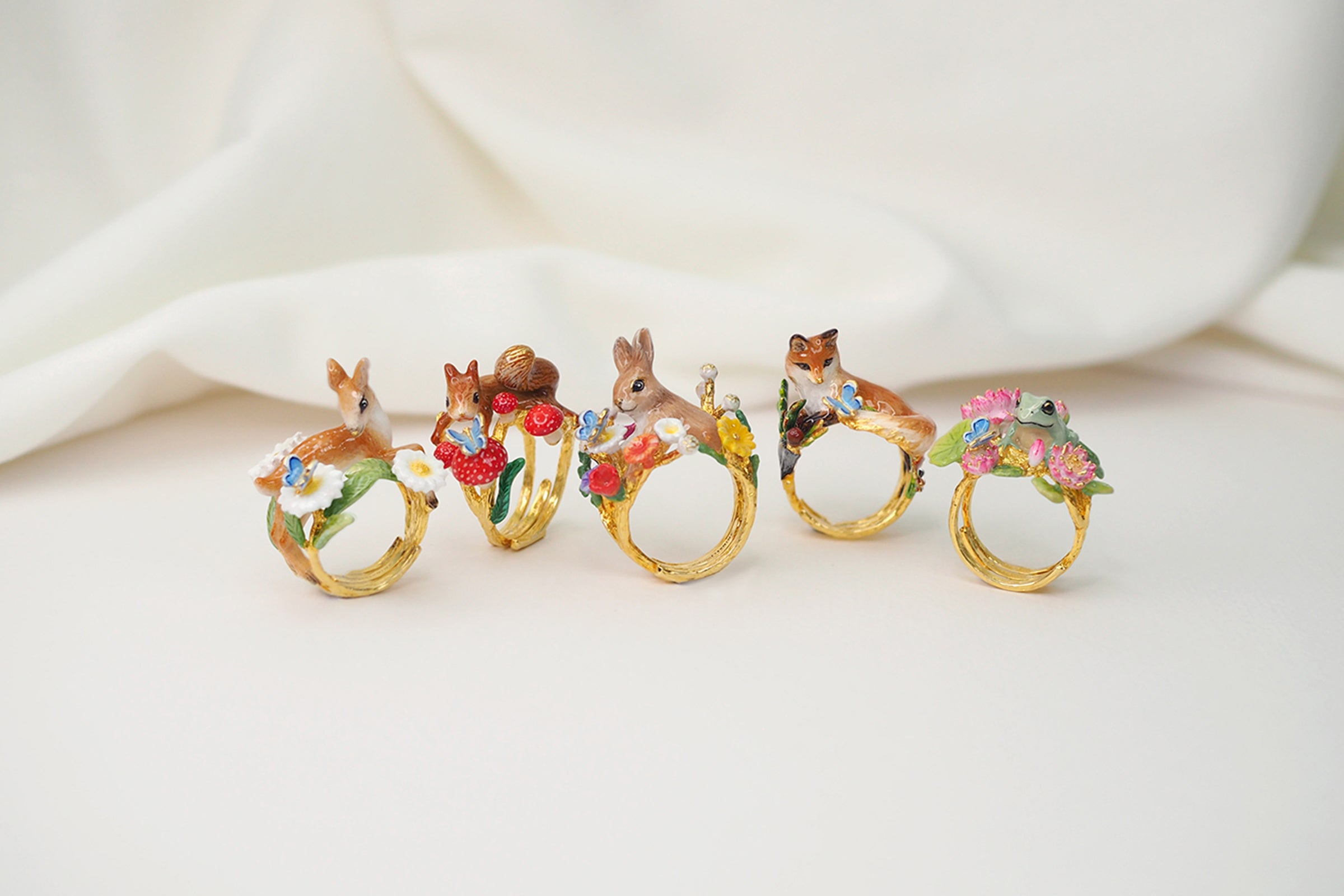GOODAFTERNINE Eco Packaging
Why We Choose Eco-Friendly Paper Packaging for Our Jewelry
Our jewelry is inspired by the beauty of nature, its forms, textures, colors, and stories. And when nature is our muse, it's only right that we strive to protect and preserve it in every step we take. That’s why we choose to use biodegradable paper boxes instead of plastic containers or reusable fabric pouches.
Because every detail, down to the packaging, should reflect our deep respect for the natural world. Our packaging is intentionally designed to serve one beautiful purpose and disappear gracefully.

100% Biodegradable and Compostable
Made from FSC-certified paper, our packaging breaks down completely within 2–6 months, leaving no plastic, no toxins, and no waste.
Just like the petals that fall to the forest floor, our boxes are meant to return gently to the earth.
Lower Carbon Footprint
Each paper box produces just ~20.9g of CO₂e, which is 10–20 times less than ABS plastic or dyed fabric pouches. By choosing low-carbon, recyclable materials, we reduce our impact on the planet, just as nature itself does with balance. In contrast, plastic boxes (e.g., ABS) take 500–1,000 years to degrade and leave behind microplastics, while fabric pouches (cotton/polyester) require significant water and energy to produce and often take decades to decompose, especially when printed or coated.
One paper box emits just ~20.9g CO₂e, about the same as our daily activities, like:
💡 2 hours of a 10w LED light
✉️ 5–10 emails sent (no attachments)
🔋 3 full smartphone charges
🖥 15 minutes of HD YouTube
Disappearing Beautifully, Not Persisting Pointlessly
We don’t believe packaging needs to last forever. It just has to do its job beautifully, then vanish. In a world already full of reusable items, making more "reusables" out of non-biodegradable materials often becomes a justification for long-term waste. Our packaging serves one clear purpose: To protect beauty and then return quietly to where it came from.
Jewelry that Respects the Earth It’s Inspired By
Our pieces are a tribute to the natural world, crafted to reflect the delicate curves of leaves, the elegance of animals, and the wonder of wild places. So it only makes sense that our packaging should honor the same source of inspiration, not harm it. Our packaging fulfils its purpose beautifully before quietly fading away, leaving only an impressive memory behind.

Footnotes / References
1.) DEFRA (UK Department for Environment, Food and Rural Affairs). Guidelines to Defra / DECC’s GHG Conversion Factors for Company Reporting, 2023.
2.) Ecoinvent Database v3.6. Carbon Footprint and Life Cycle Data for Packaging and Materials.
3.) PlasticsEurope. Environmental Product Declaration – Acrylonitrile Butadiene Styrene (ABS), 2022.
4.) Textile Exchange. Preferred Fiber & Materials Market Report, 2023.
5.) WRAP UK. Water and Carbon Footprint of Cotton T-Shirts, 2020.
6.) UK Environment Agency. Life Cycle Assessment of Supermarket Carrier Bags: A Review of the Bags Available in 2006, SC030148, 2011.
7.) Geyer, R., Jambeck, J. R., & Law, K. L. Production, Use, and Fate of All Plastics Ever Made, Science Advances, Vol. 3, no. 7, 2017.
8.) U.S. Environmental Protection Agency (EPA). Degradable Waste Management & Composting Factsheet, updated 2022.
9.) World Wide Fund for Nature (WWF). The Impact of Packaging on Nature, 2021.
10.) Earth911. How Long Does Trash Last?, 2020.
11.) Ellen MacArthur Foundation. The Circular Economy in Packaging: Design Principles for the Future, 2022.
12.) Sustainable Packaging Coalition (SPC). Definition and Guidelines for Sustainable Packaging, 2023.
13.) Council for Textile Recycling. Facts About Textile Waste and Recycling, 2021.




